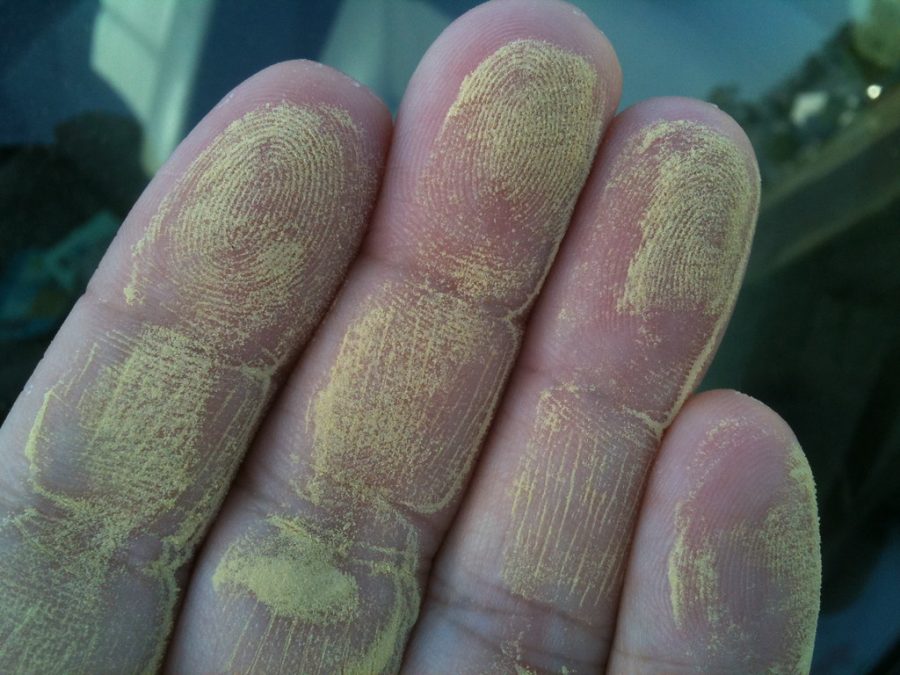It’s a beautiful early spring day in April, just warm enough to make sitting outside at Roots Cafe enjoyable. But as I sit and do my homework under the waning afternoon sun, I can’t help but think of the torture the next month will bring. For most people, warmer days like these show beginning signs of blossoming flowers and sunny days spent outside enjoying the weather. Others, like myself, find themselves suffering from the symptoms of seasonal allergies. Bright green grass and newly budding trees, to me, just make me think of sneezing and itchy eyes.
Everyone who suffers from seasonal allergies knows just how annoying they can be. A perfectly pleasant spring or early summer day can quickly be spoiled by an allergy attack that feels like a bad head cold. The last thing I want to do on a sunny day is stay inside, sick. But over time, I’ve noticed that I seem to start suffering from allergy symptoms earlier and earlier in the spring.
Take this spring, for example. On the first warm day we had this month, I was already sneezing. My eyes wouldn’t stop itching all day. Normally, I don’t feel allergy symptoms until at least early May, but each year I feel their effects earlier and earlier.
At first, I thought I was misdiagnosing my premature allergy symptoms. I thought I might just have a bad cold brought on by stress from exams. However, I’ve had allergies long enough to know their effects and the difference between seasonal allergies and a cold.
Research can confirm that I’m not just imagining that my allergies are arriving earlier each year. Not only are spring allergies unpleasant enough already, but the effect of climate change has led to an increase in pollen production – so it’s not surprising that the length of allergy season, as well as the severity of the resulting symptoms, has increased. Charles Schmidt, a writer for Environmental Health Perspectives, stated that “When exposed to warmer temperatures and higher levels of CO2, plants grow more vigorously and produce more pollen than they otherwise would.”
Of the global population, 10 to 30 percent, including 50 million Americans, already suffer from seasonal allergies. According to Leonard Bielory, a professor and allergy specialist at Rutgers University’s Center of Environmental Prediction, this number is likely to rise over time. “In general, the longer you’re exposed to an allergen, the more likely you are going to be sensitized to that allergen,” Bielory says. With pollen levels rising every year, Bielory’s prediction doesn’t bode well for the health and happiness of the general world population during the late spring months.
Of course, there are allergy medications that can be taken to relieve allergy symptoms, but only immediate action can stop the rise of climate change. An increase in the severity and longevity of allergies is just one of many key pieces of evidence supporting the need for drastic change in human habits to prevent further warming of the earth. All over the world, ocean temperatures are warming, ice sheets are shrinking and glaciers are retreating.
With an overwhelming amount of evidence pointing toward irreversible damage due to climate change, what can each of us do to help decrease its effects on our planet? The first step to a greener and cleaner planet is to have a passion for saving it. More people need to become aware of small ways they can reduce their carbon footprint, such as advocating for renewable energy, using public transport or biking, eating more sustainably or even just something as simple as remembering to turn off the lights when you leave the room. Taking any of these small steps will make an impact in saving our planet in the long run.
So next time you feel an allergy attack coming on, take time to reflect on the effects of climate change and what you could do to help.
Alanna Joachim is a Collegian columnist and can be reached at [email protected].




















NITZAKHON • Apr 17, 2019 at 12:51 pm
So if it’s warmer, it’s CLIMATE CHANGE. Same for if it’s colder. Or wetter. Or drier. Or stormier. Or calmer. Or has more pollen. Or less pollen.
Which, if you knew a sliver of a scintilla of a fraction of an iota about the scientific method, would prove CLIMATE CHANGE is not a science. Because in a science, in any scientific theory, there must be a way to disprove it.
So tell me… what, in your mind, would be a testable prediction that, if it failed it, would weaken if not disprove the theory?